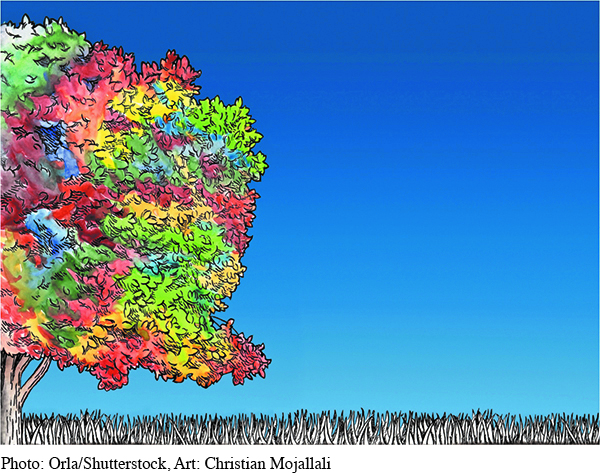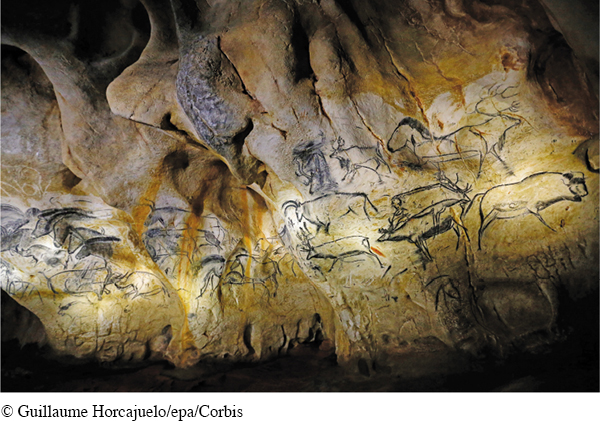2
Thinking about Literature

Humans tell stories.
It is how we communicate, it is how we entertain, and it is how we make sense of our world. In the words of writer Graham Swift: “Only animals live entirely in the Here and Now. Only nature knows neither memory nor history. But man—
Think about times that you get together with your family or friends. Much of your conversation is likely storytelling: telling them about something that happened to you, something you saw on the Internet, something that is going on in another person’s life.
Storytelling seems to go as far back as humanity itself, even before the written word. The cave drawings in the Chauvet Cave in France (see p. 26) were created over forty thousand years ago. You can see the artists trying to communicate something about the animals around them and their relationships with them—

Why is storytelling so vital to our lives? When we listen to other’s stories, we see ourselves in them—
Beyond hearing the stories of our close friends and relatives, we also encounter stories through films, plays, novels, short stories, and poetry. For shorthand, we will refer to all of these types of imaginative texts with the term “literature.” Through literature, we can visit distant lands and meet people in cultures we might not otherwise encounter.
Literature is both an exploration of ourselves and of everything beyond ourselves. In fact, research by Ohio State University has “found that after reading literary fiction [. . .] people performed better on tests measuring empathy, social perception and emotional intelligence—